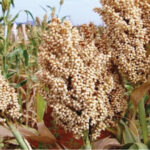The International Fund for Agricultural Development Value Chain Development Programme (IFAD-VCDP) has given out Dry Season Farming implements, rice and cassava processing machines to 99 farmers in eight LGAs of Niger State to enable them engage in dry season farming to reduce the negative impact of flooding on food and nutrition security in the state and Nigeria.
The agency also distributed rice and cassava processing machines and grinding machines to women and 10 people with disabilities to lift them out of poverty and to contribute their quota to the nation’s food and nutrition security.
Why Benue didn’t get fertiliser this year – HYPPADEC
Gurara multibillion naira irrigation project comatose; farmers lament
The implements distributed included 80 knapsack sprayers, 20 power tillers, 8 Rice De-stoner, 26 threshers, 20 water pumps and accessories, 3 solar pumps for irrigation, 3 rice milling machines, 10 grinding machines, 2 cassava peeling machine and 4 graters.
Others were 4 Jack Presser, 4 Communal Fryer, 3 Rice flour machines motor power, 4 sealing machines, 3 rice polisher, 16 standard weighing measure, among others.
Flagging off the distribution of phase one of the equipment at the Minna Farm Centre, the National Programme Coordinator, Dr. Fatima K. Aliyu, said the Value Chain Development Programme of the IFAD had supported over 32, 000 farmers in rice and cassava value chain in the areas of production, processing and marketing in Niger State.
“Farming is a business and that is what we want our farmers to understand. We want our women and youth to become gainfully employed through agriculture. I am pleased to inform you that IFAD has approved a $5m grant to the government of Nigeria to establish climate adaptation infrastructure and build capacities of our farmers because we don’t want our farmers to be devastated with floods again. We want to minimize the impact of flooding and other severe weather activities on our farmers. So, we are going to use this money to ensure that we minimize the adverse effect of climate conditions,” she said.
She said capacity building of farmers by IFAD-VCDP had increased yield in rice production in Niger State from 1.8 tons to 4 tons per hectare, adding that the simple implements distributed were to further assist farmers, especially those whose farms were washed away by flood to engage in dry season farming to enable them rise from the negative impact of flooding.
Dr Aliyu said many university students who engaged in farming in the state during the prolonged strike by the Academic Staff Union of Universities (ASUU) had become financially stronger as they resumed back to school after the strike.
“If we want to achieve sustainable food and nutrition security, we have to involve our women and for us in the IFAD-VCDP, we are gender sensitive. Many women and youth have become financial independent through farming and sufficiency in food production has greatly improved.”
She said Niger State has enormous potentials in terms of landmass and arable land for agricultural production and warned the beneficiaries against sale of the implements.
The Niger State Governor, Abubakar Sani Bello, represented by his deputy, Ahmed Mohammed Ketso, who said many farmers in the state lost their farms produce worth millions of naira, advised farmers in the state to get insured with the National Agricultural Insurance Corporation to reduce the negative impact of losses uncured due to flooding.
 Join Daily Trust WhatsApp Community For Quick Access To News and Happenings Around You.
Join Daily Trust WhatsApp Community For Quick Access To News and Happenings Around You.


